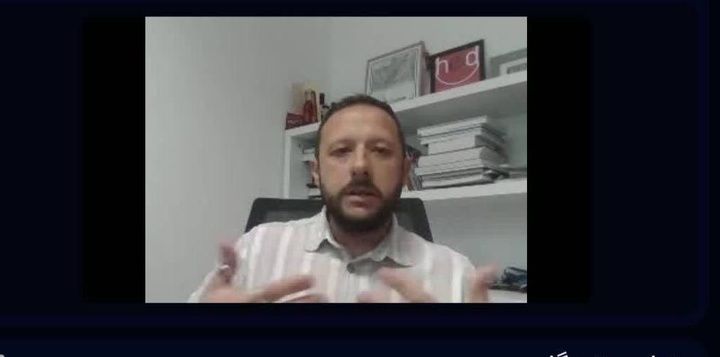Under the auspices of the Islamic Research Foundation of Astan Quds Razavi and in cooperation with the Deputy Office for International Pilgrims’ Affairs, a specialized webinar titled “Pilgrimage Methodology” was held as part of the “Pilgrimage in the World” series.
Hosting the webinar, Mario Ketting, professor at the University of Zadar in Croatia, described pilgrimage as a rich and complex interdisciplinary phenomenon shaped by religious structure, sacred sites, and cultural-historical contexts.
“No single approach can fully address the dimensions of pilgrimage, and researchers must engage with diverse methodologies to navigate its intricacies”, he emphasized.
Based on a 2023 study, Ketting outlined seven analytical perspectives for examining pilgrimage sites: anthropological, ecological, historical, cultural, social, personal, and spiritual.
“Pilgrims bring personal experiences, beliefs, and religious backgrounds into the act of pilgrimage, which significantly shapes its process and meaning”, he noted.
Until 1995, most pilgrimage studies were one-dimensional, focusing on a single site or activity.
Modern research now adopts multi-layered approaches, analyzing various pilgrimage destinations across political and social contexts and exploring roles played by pilgrims, tourists, volunteers, and cultural activists.
“Archival research is a key method, involving worship records, entry styles, historical documents, and oral memories”, Ketting highlighted.
He stated that such sources enrich scientific analysis and deepen understanding of religious lifestyles.
Digital technologies like photography, film, and virtual pilgrimage have expanded research possibilities.
“Virtual pilgrimage”, he said, “offers spiritual experiences without physical presence, especially during crises or travel restrictions”.
While methodological diversity offers new opportunities, it also presents challenges—chief among them, selecting the right approach based on research goals, site characteristics, and the scholar’s perspective.
Ketting recommended: “Future studies focus on varied pilgrimage sites within different political, social, and cultural frameworks to present a more comprehensive and realistic understanding of the role of pilgrimage and impact”.
He concluded by sharing his own academic journey, noting that his initial focus on a single site evolved into a broader, multi-site approach that provided deeper insight into the phenomenon.

A virtual session explores multidisciplinary approaches to sacred travel or pilgrimage, highlighting the evolving role of technology, personal experience, and cultural context.
News Code 6821

Your Comment